Finding Gyokeres: Exploring the origins of Sporting's Swedish phenomenon

It's 6pm, and as we walk through a neighbourhood of buildings, similar in colour and structure, night begins to cover the land and the condensation in the air becomes visible from the very cold weather.
We're in Sweden's capital, Stockholm, far from the centre where the Royal Palace or the famous Drottniggatan are located (essential points for anyone planning a trip to this metropolis of over 900,000 inhabitants), but in a place that is becoming increasingly famous.
Surrounded by buildings on three sides and a small forest on another, Aspuddens Idrottsplats has received an unusual amount of attention in the last year. It was here that, at the age of six, Viktor Einar Gyokeres began to kick a ball and launched a career that is now reaching stardom.
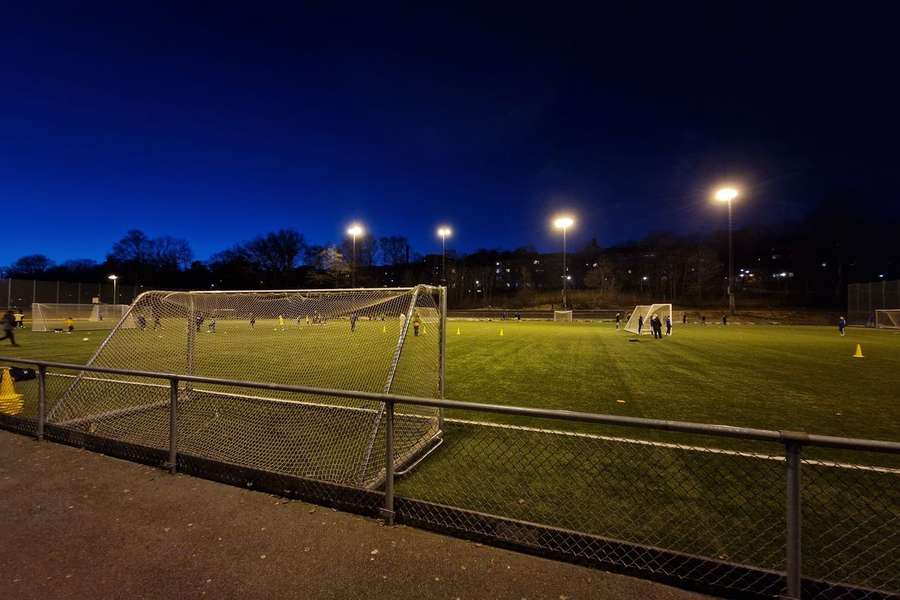
"Just another journalist," jokes Bjorn Thuresson, a tall figure with a white beard that stands out from the crowd. The president of Aspudden-Tellus welcomes us with an affable handshake, while he goes out of his way to talk to us and other colleagues from the Swedish press who have also come to the small stadium where teams of children and teenage girls train together, side by side, wearing blue or yellow jerseys. These are some of the 1,300 athletes who are registered with the club.
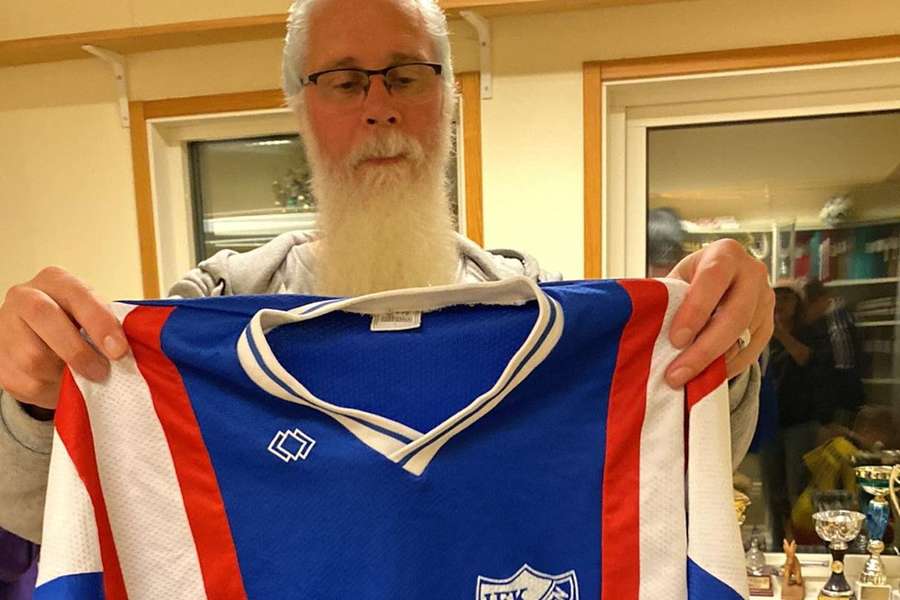
Recipe: Play football
Few fans will have heard of Aspudden-Tellus. A small club south of Stockholm, it is completely amateur (nobody is paid between players and coaches) and has a women's team that plays in the second division, while the men are in the third tier.
"It's not important to go up a division, we want to have our local players and if we're good enough to be in the second division, we'll play in the second division, if it's the third division we should be in, we'll be happy," said Bjorn.
A far cry from what we might imagine as an elite football academy, while they didn't possess the facilities of some of Stockholm's top clubs such as AIK, Djurgardens or Hammarby, Aspudden still managed to keep Gyokeres in their ranks until he was 16 when he left for Brommapojkarna, perhaps the Swedish capital's fourth biggest club in terms of status.
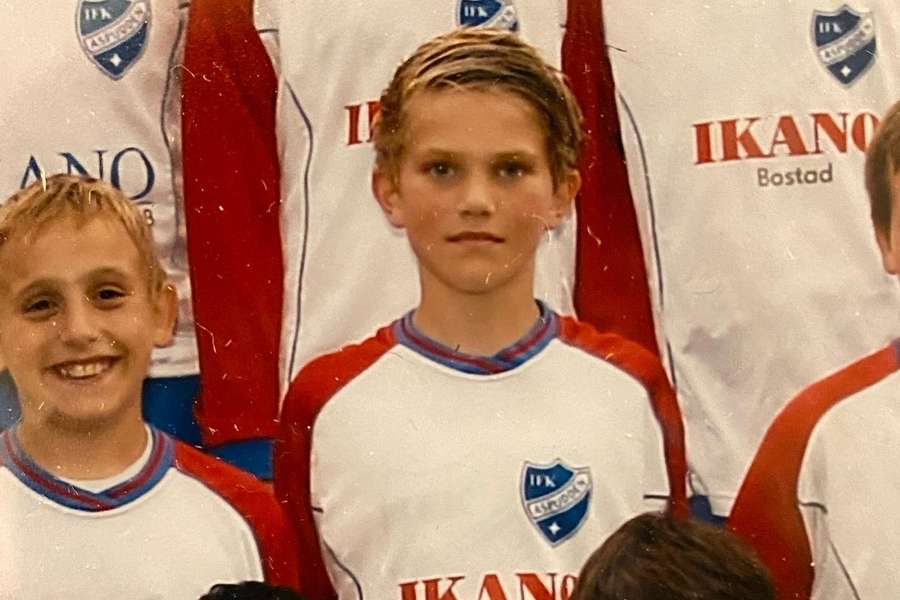
Unusual in a world where Zaire-Emery is leading the PSG midfield at the age of 18, where young players are achieving star status so early. Incidentally, looking at Swedish football, this year saw a teenager leave in the winter (Jonah Kusi Asare for 4.5 million euros to Bayern Munich) without even making his debut in the Allsvenskan.
So what was the recipe for keeping Gyokeres at Aspudden for so long?
"It's unusual for Viktor (this is how he's referred to throughout the conversation) to stay at his first club for so long. The way I see it, there were two factors: he really liked playing with his friends, who he'd been with since he was five. And living nearby, his father was one of the coaches. This was easily accessible, he could come here and play. He was always here with his friends, even if there was no training, and that was great for him.
"Our model is to give people the opportunity to play football. We have low prices, we're not an academy or an elite club. We give access to anyone who wants to play football as much as possible. That's why he's been able to play more football here. If he'd gone to an academy, he could have stayed on the bench or faced other situations. Here he knew he was always playing, he was one of the best and he was a starter. That helped him stay here longer," explained Bjorn.
The evolution
In the 11 years that he played on this synthetic turf, where you can still see a few mounds of snow on the side, Gyokeres had already shown the qualities that now make him the main name in a Sporting team that is perhaps the main contender for the league title.
"From the start, he was very dedicated and focused, very serious. He didn't care about many things and that had some consequences. He hated losing and didn't say nice things to his teammates when they weren't doing well.
"I think this was most noticeable when he arrived at Brommapojkarna, where some people asked him to take it easy, but he gave 100% in every training session. It's part of his personality, it's probably the reason he's been so successful," the president explained to us.
"He's always been a powerful player, very aggressive. When his physique got bigger, at the age of 15... If someone got in front of him, it was better to get out of the way. The goals he scored here, always in front of goal, are the same goals we see now".
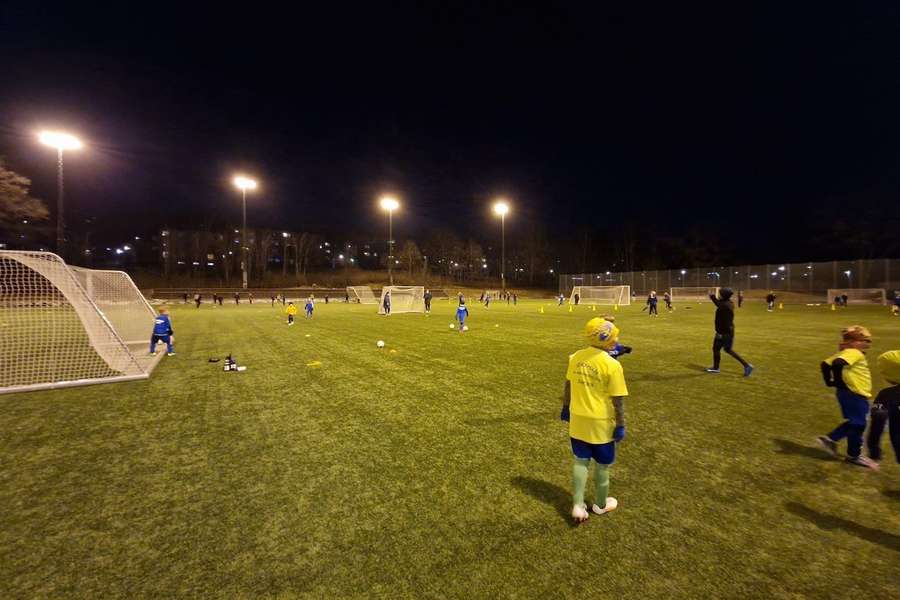
However, one thing has changed. Like all good strikers, Viktor Gyokeres has that one characteristic that everyone needs but always criticises: he only has eyes for goal. That being said, his time at Sporting has shown that he doesn't mind providing for others; Gyokeres has nine assists - only Pedro Gonçalves (10) and Rafa (11) gave more.
"For a long time he had trouble passing, he only had eyes for goal, he was a pure striker. It's great to see that now he's making assists at Sporting, because that's something he didn't do when he was young. But there you go, when you're young you have a profile, but then you grow up and gain more qualities. I'm very happy to hear that he's growing up," he said.
The celebration
Gyokeres' style of play is becoming more and more recognisable, and as soon as you say his name, you think of his runs through midfield with the ball and a defender desperate to stop him. However, what happens once he scores still raises many questions.
He runs towards the fans and covers his face with two hands, leaving only his eyes visible. It's a trademark that can already be seen everywhere in Portugal, whether it's children playing in the playground or other players who find it funny. But here in Sweden, too, the trend has caught on and when we talk to the youngsters about Gyokeres, the gesture is often brought up. Even on the sidelines, parents imitate the gesture when they hear about the striker.
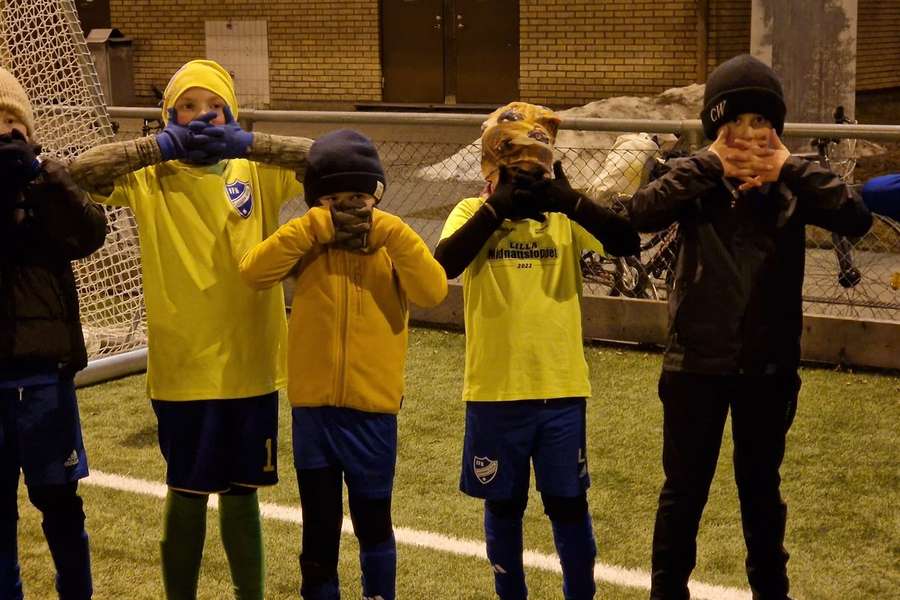
But what is the real meaning?
"Everyone asks. He's always been very elusive. Nobody knows. He hasn't told anyone. Apparently some of his closest friends don't know, he hasn't said anything. I have no idea. Some kids here do it now. Because it's become something recognisable," said Bjorn, who also attests to the player's growing fame in Sweden:
"Not many people follow the Championship (England's second tier, where Coventry was), but Viktor was already known because he took part in a winter tour with the Swedish national team. Now that he's earned a regular place in the national team, more people know him and realise how successful he is. Some may still say it's only in Portugal, but it's a league with good players, better than ours for example."
"At the age of six or seven, you could already see that he was focused and wanted to win. We're proud of him and the kids look up to Viktor and want to emulate him," said Goran, Gyokeres' first coach.
We left the stadium with the training session underway while a group of scouts gathered for activity at a headquarters within the perimeter of the pitch. It's hardly the elite environment in which most professional footballers grew up. But this is the simple recipe that helped Viktor Einar become Gyokeres, the name that has taken over Portuguese football in 2023/34.

